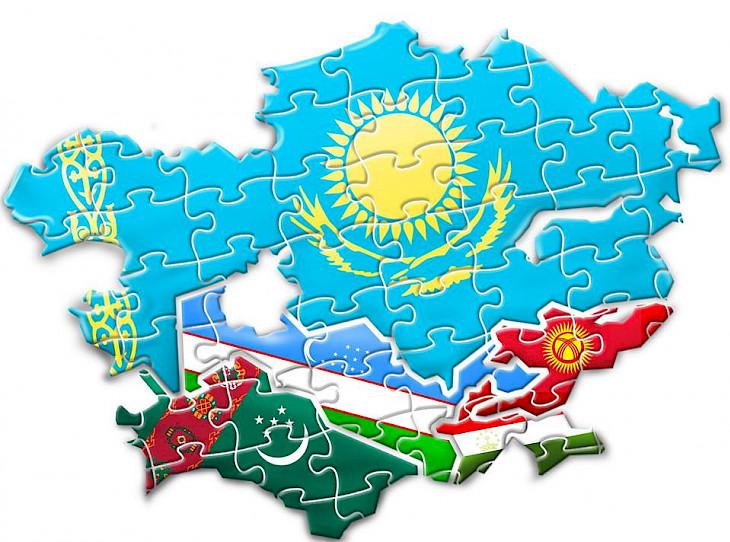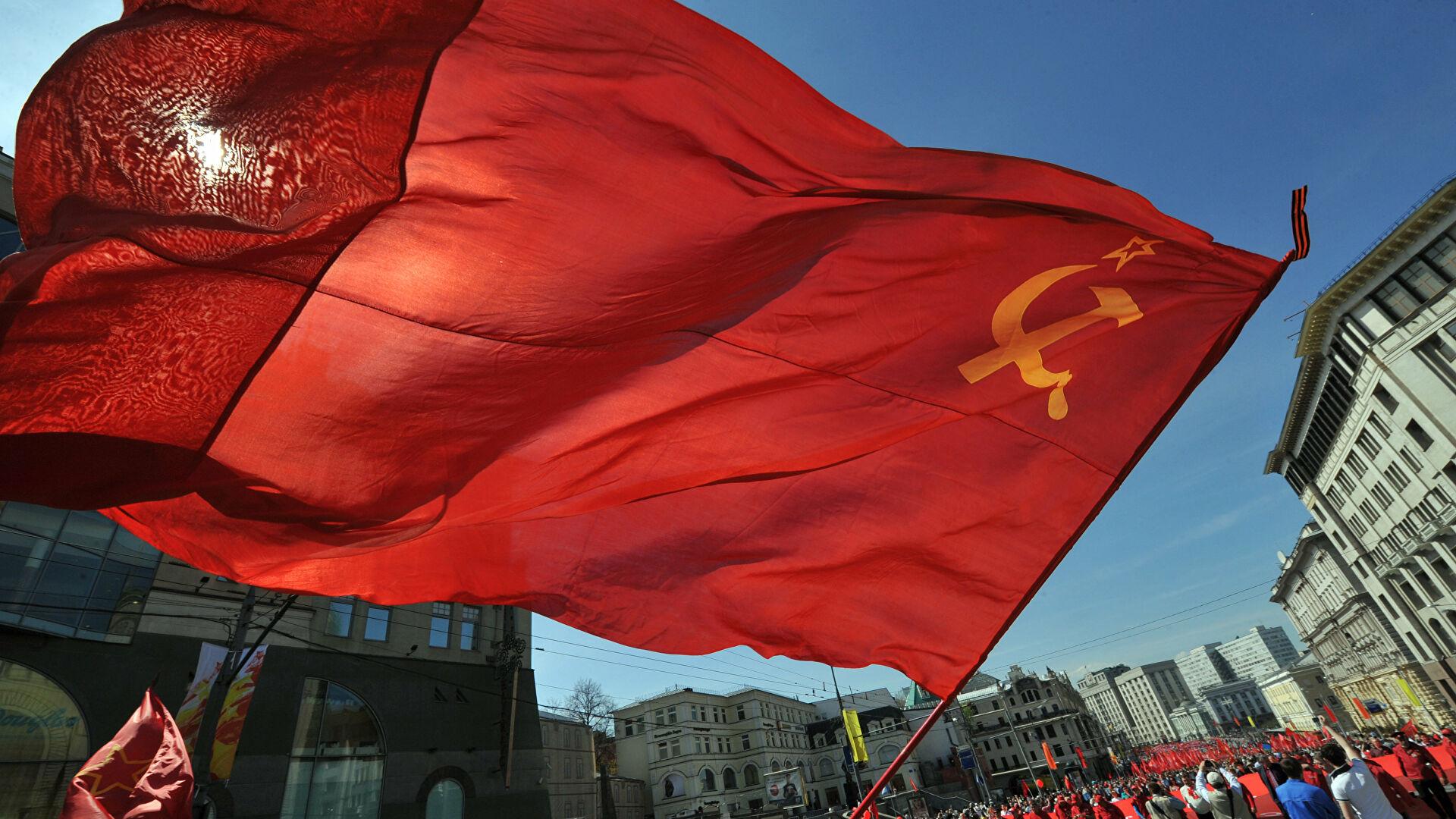Turkestan and USSR's colonial policy
Restrospective journey into history on Caliber.Az
ANALYTICS 18 July 2022 - 15:19
| Maxim Petrov Caliber.Az |
When taking part in discussions about the Soviet Union many times I have noticed that the participants usually ignore the question about the colonial nature of the regime in the Soviet Union. This nature was especially pronounced in the republics of Central Asia (Turkestan). We are talking about a region of colossal size, with a predominantly Muslim, Turkic-speaking population. This region was controlled by tsarist Russia and then by the Bolshevik regime.
The region was conquered by Lenin by force of arms after the destruction of the local movement for the independence of Turkic peoples - the Kokand Autonomy (1918) and the Basmachi movement. Local Bolshevism was initially associated almost exclusively with the Russian-speaking minority and relied on an alliance with Armenian nationalists from the Dashnaktsutyun party.
This alliance helped defeat the movement for an independent Turkestan, the Kokand Autonomy. The documents testify to the extreme cruelty with which this alliance massacred the local population by slaughtering entire villages suspected of supporting the partisans. This was pointed out by the chairman of the Council of People's Commissars of Turkestan K. Atabayev (in 1922).

The Basmachi, the local guerrilla national liberation movement which fought against the Bolsheviks, were portrayed exclusively as bandits or Islamists in Soviet cinema. This is a half-truth. Although some of them were indeed Islamists and some others were gangs of robbers, Jadids (the bourgeois-democratic movement) and Turkic socialists from the Erk party, associated with the prominent political figure Zakhi Validi, who advocated the independence of the Turkic peoples, were also active alongside them. Some groups cooperated with the Russian socialist revolutionaries (the Socialist Revolutionary Party), while local businesses, including Jewish merchants, provided serious material assistance to the Basmachi.
In short, a local national liberation movement existed, divided into many movements, including those who called or considered themselves socialists, and were suppressed by the Soviet Union.
Again, during the Civil War, the Bolshevik regime relied primarily on part of the Russian-speaking population. However, it totaled about 750,000 of Turkestan's roughly 7.5 million population in the early 1920s. Grigory Broido, a prominent Soviet politician and administrative worker, wrote in late 1921 about the situation in Central Asia, overrun by Bolshevik Russia: "The organizers of life are Russian settlers and workers, infected with colonialism ... The Soviet apparatus absorbed all the old officialdom, the typical legacy of peripheral politics. The party organizations are quite a reflection of the social structure of Turkestan. Great Russian militant chauvinism and defensive nationalism of the enslaved masses of the colony, imbued with mistrust of Russians in general is their main characteristic feature. A Russian Communist is a privileged person. The Party court withdrew until recently all cases of general criminal jurisdiction, turning into a class court for the crimes of Russian Communists."
Meanwhile, as Russian historian Boris Kolonitsky points out, it was in Turkestan that the Russian revolution (in the sense that it took place on the territory of the Russian Empire) and the civil war - the Great Central Asian Uprising of 1916 - began. The local peoples and tribes rebelled against the forced mobilization to work for the tsarist government during World War I. In addition, the local population was angered by the Russian colonial state's seizure of some of their land. This revolt was suppressed by tsarist troops, but it was the one that shook the region. The Kokand Autonomy, as well as the Basmachi movement, were actually a continuation of this uprising.
Moreover, it was in this region that the civil war ended - the Turkestan Front was officially eliminated by the Bolshevik regime in 1926. However, battles between the Bolshevik Red Army and the Basmachi continued after that. Uzbek historian Shukhrat Barsas notes that they continued until the end of the 1930s. A former leader of the Tashkent City Komsomol Committee told me that underground networks, which had a Basmachi past, existed in the Ferghana Valley until the end of the 1980s.
The Bolshevik regime initially had no foothold here among the Muslim majority and was imposed by force of arms. The region was conquered by the Red Army: what is this but an element of colonization?
Later management of the region also showed signs of colonization, including the physical destruction of local intellectuals in the late 1930s and the orientation of the local economy toward a monoculture of cotton (a typical colonial practice). In the USSR, raw cotton was grown in the Central Asian republics, mainly in Uzbekistan.
However, along with this, industrial modernization and the development of secular education and health systems took place. But it is worth remembering that the British did the same in colonial India (including the rapid development of the British military-industrial complex and the giant construction of railroads in that country). Even if Soviet policy was not purely colonial, it certainly included colonial elements.

An important element of colonial policy was residence permit. The capital, Moscow, with its 10 million inhabitants, received special benefits, which were determined by decisions of the Central Committee of the Party and the central government agencies that ran the Soviet economy. Residents of the regions, for the most part, had no right to live in Moscow - obtaining a Moscow residence permit was not easy, and for most it was impossible.
The very division of Turkestan into Uzbekistan, Turkmenistan, etc. (separate republics within the USSR) was largely artificial, as local national communists believed. The reason was that Moscow was afraid of the emergence of a single Muslim-Turkic republic with huge territory and population within the USSR. It would inevitably gain certain independence from the Kremlin simply by virtue of its size and resources.
It was a classic colonial "divide and rule" principle. In all cases, it was possible to find reasons for such a division - differences in local languages and customs - but it was just as possible to create a single Turkestan on the basis of similarities between them. The reasons why this was not done are quite obvious.
In the 1920s the Turkic-speaking National Communists tried to act. As supporters of the Bolshevik party-state model, nationalization of the economy, and one-party dictatorship, as well as secular, scientific, and industrial modernization, they were also ardent supporters of local autonomy and language.
The central question was from where and who governed the region, in whose hands were the economy, the party-political apparatus, and the power resource (the army). Historically, all this was concentrated in the Kremlin, so all the talk about supposedly unifying the republics within the USSR has lost all meaning and remained an empty formality. The Kremlin controlled almost everything, and the local republican government was reduced to following the orders of the center. However, even within this model, the Kremlin feared the emergence of a single Soviet Turkestan, such a republic could become too big and rich.
The Muslim Communist Party and the "Muslim Red Army", according to the prominent Bolshevik Mirsaid Sultangaliyev, who belonged to the national-communist trend, would be a natural extension of the struggle for the independence of the Turkic-speaking peoples. Such an independent Turkestan could, in his opinion, be in an equal alliance with Moscow. At the same time, the national secular Turkic-speaking intelligentsia, some of which sympathized with similar ideas, was also developing. National Communists were destroyed by the USSR regime in the 1930s.
The working class in these regions had no tradition of autonomy and was gripped by national feeling. Moreover, it was split along national lines. And this, too, was to some extent the result of colonialism. All this did not save the Soviet Union from disintegration. In the late 1980s and early 1990s, local party and economic elites privatized both the territory and industry of the USSR. They did this with the help of the local population, driven by feelings of anger and resentment toward inequality in the USSR.
Caliber.Az
|
1
|
High time to declare US ambassador persona non grata Mr. Libby, take your suitcase and leave for Washington
05 May 2024 - 12:06
|
|
2
|
West destabilising situation in Georgia Security, impunity for (foreign) agents
05 May 2024 - 17:28
|
|
3
|
Double standards and Michel's confession Europe's hypocrisy
05 May 2024 - 11:18
|
|
4
|
Armenian priests, peddling false narratives Unmasking revanchist rhetoric
05 May 2024 - 14:57
|
|
5
|
What to expect from China’s stance on Palestine? A long track of mediation
04 May 2024 - 10:28
|
“Golden week” fireworks flop shows Hong Kong’s tourism plans lack sparkle
07 May 2024 - 07:03
US AC-130J Ghostrider destroys Chinese "Fishing Boat" in rare military drills
targeting notorious vessels07 May 2024 - 05:04
EU finally ready to bring down Russia’s gas empire … sort of
07 May 2024 - 03:05
Theoretical potential of blue energy in US - enormous
largest project in history07 May 2024 - 01:03
Shell sells millions of “phantom” carbon credits
06 May 2024 - 23:01
Hungary, Armenia agree to open embassies
06 May 2024 - 21:18
Azerbaijan’s Shusha, Lachin to co-host Kharibulbul Music Festival
06 May 2024 - 21:10
Azerbaijan, Türkiye to expand cooperation in military education
PHOTO/VIDEO06 May 2024 - 20:55
Armenian PM to skip out Russian leader's inauguration
06 May 2024 - 20:46
Azerbaijan, Uzbekistan to collaborate in health insurance sector
06 May 2024 - 20:36
Turkish military neutralises seven PKK/YPG terrorists in northern Syria
06 May 2024 - 20:32
Kremlin says Russia investigating alleged French troops deployment in Ukraine
06 May 2024 - 20:14
Australia denounces China over "unsafe" aerial confrontation
06 May 2024 - 20:14
Poland has secret weapon to shift Donald Trump against Russian leader
06 May 2024 - 19:59
The Armenian Church's detrimental role in resisting peace initiatives
06 May 2024 - 19:55
Slovak PM arrives in Azerbaijan for official visit
06 May 2024 - 19:52
US ambassador visits school in Azerbaijan’s Fuzuli
06 May 2024 - 19:50
IAEA chief visits Iran for key nuclear talks
06 May 2024 - 19:43
Belgium starts discussions about possible EU trade sanctions against Israel
06 May 2024 - 19:25
Azerbaijani conference participants discuss modern international legal tools
06 May 2024 - 19:06
Iran to begin construction of new nuclear reactor
06 May 2024 - 18:49
40 pillars installed along Azerbaijan-Armenia border as geodetic measurements progress
06 May 2024 - 18:40
European Commission hopes China to influence Russia
06 May 2024 - 18:33
Armenian president to leave for US
06 May 2024 - 18:25
Egypt preventing escalation of situation between Israel, Hamas
06 May 2024 - 18:14
Slovak PM embarks on visit to Azerbaijan
06 May 2024 - 17:55
US ambassador hails Azerbaijan's efforts in rebuilding Fuzuli
06 May 2024 - 17:38
Poland not to send troops to Ukraine
06 May 2024 - 17:20
Germany recalls its ambassador from Russia
06 May 2024 - 17:02
Defence Turk: Azerbaijan to buy DITA wheeled self-propelled howitzers
PHOTO06 May 2024 - 17:02
Walking a tightrope between pressure and objectivity
Russia's diplomatic tactics with Armenia06 May 2024 - 16:45
Azerbaijani State Border Service chief meets King Charles III at Royal Windsor Horse Show
PHOTO/VIDEO06 May 2024 - 16:31
Human remains discovered in Gubadli
06 May 2024 - 16:25
Azerbaijan showcases its tourism opportunities at ATM Dubai 2024
PHOTO06 May 2024 - 16:15
Tensions rise amidst concerns over potential Gaza offensive
US halts ammunition supply to Israel06 May 2024 - 16:06
FT: Discussions underway to bring Arab peacekeepers into Palestine
06 May 2024 - 15:48
National Assembly president: Opposition wants to drag Armenia into war
06 May 2024 - 15:43
US ambassador expresses delight at visit to Shusha
06 May 2024 - 15:31
Armenian FM advocates for recording commitments of Yerevan and Baku at upcoming Almaty meeting
06 May 2024 - 15:29
India – Oman trade deal and balance of power in the Gulf
Strategic convergence06 May 2024 - 15:19
